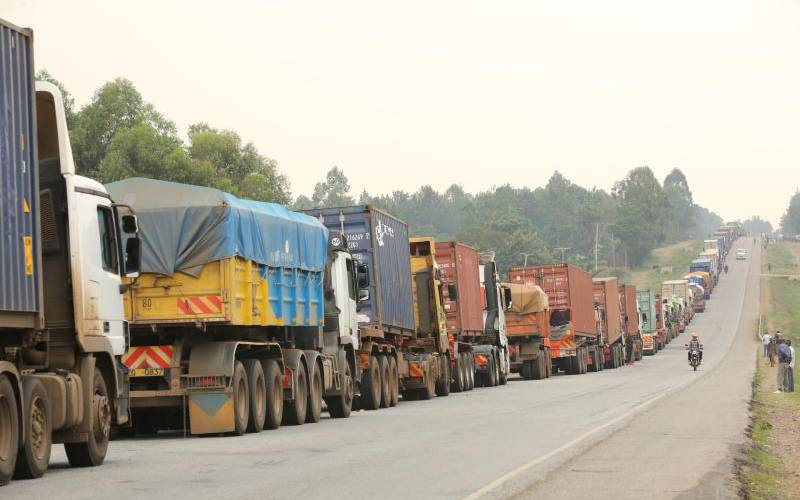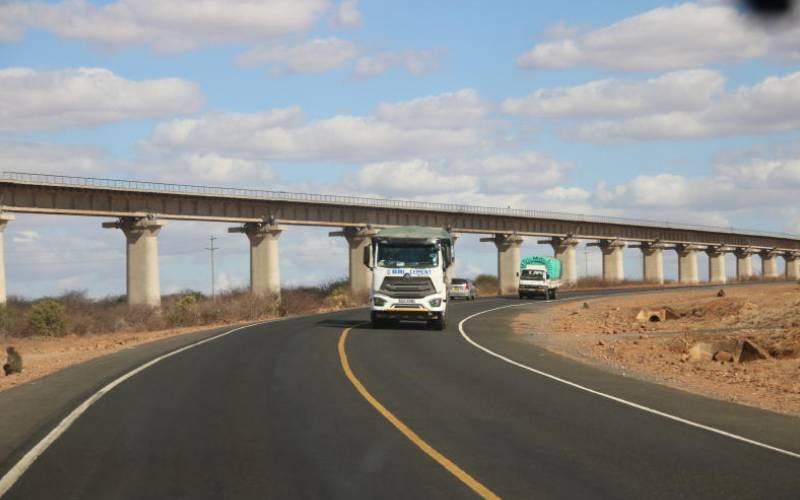
Kenya stands at a crossroads in its economic development journey. As East Africa’s largest economy, the country has made significant strides in creating a business-friendly environment through initiatives like the African Continental Free Trade Area (AfCFTA) and progressive digital trade laws.
However, beneath this promising facade lies a complex web of regulatory challenges that continue to hinder business growth, particularly for small and medium enterprises (SMEs) and manufacturers.
The reality facing Kenyan entrepreneurs today is a triple threat of burdensome trade regulations, an increasingly complex tax regime, and a labyrinthine licensing system.
While the government has implemented policies aimed at stimulating economic growth, many businesses find themselves caught in a paradox where progressive reforms are undermined by persistent bureaucratic hurdles.
This article examines these challenges in depth, exploring how they impact different sectors of the economy and what reforms are needed to truly unlock Kenya’s commercial potential.
-The promise and reality of trade liberalisation.
Kenya’s enthusiastic adoption of AfCFTA in 2021 marked a watershed moment for the country’s trade policy. The agreement’s ambitious goal of eliminating 90 per cent of intra-African tariffs presented Kenyan businesses with unprecedented access to a continental market of 1.3 billion people.
For export-oriented sectors like textiles, horticulture, and manufacturing, AfCFTA promised to be a game-changer, potentially increasing Kenya’s intra-African trade by 15 to 25 per cent by 2040, according to Economic Commission for Africa projections.
However, two years into implementation, the experience of Kenyan traders reveals gaps between policy and practice. While tariff reductions have materialised, non-tariff barriers (NTBs) have emerged as the new frontier of trade obstacles. Exporters routinely face inconsistent customs procedures across different African markets, with some countries imposing arbitrary product standards or unexpected documentation requirements.
A tea exporter in Kericho reports spending up to two weeks clearing goods at the Mombasa port due to redundant inspections, despite having all proper certifications.
The infrastructure deficit compounds these challenges. Kenya’s road network, while relatively developed by regional standards, still suffers from critical bottlenecks.
The Northern Corridor, which handles most of Kenya’s transit trade to landlocked neighbours, experiences frequent congestion at weighbridges and border points.
These logistical inefficiencies add an estimated 20-30 per cent to transport costs, eroding the competitive advantage that AfCFTA’s tariff reductions were meant to create.
-The digital commerce paradox.
Kenya’s digital economy presents another fascinating case study of regulatory contradictions. On one hand, the country has established itself as Africa’s fintech pioneer, with mobile money penetration exceeding 80 per cent of the adult population.
Stay informed. Subscribe to our newsletter
Progressive legislation like the Data Protection Act (2019) and the Electronic Transactions Act (2011) created a robust legal framework for e-commerce to thrive. Some startups like Copia and Sky Garden have leveraged this environment to build pan-African digital marketplaces. Yet beneath this success story lies a growing regulatory burden that threatens to stifle innovation.
Digital businesses now navigate a complex maze of licenses and permits that vary not just by sector but often by county jurisdiction.
A Nairobi-based e-commerce platform must obtain at least seven different licences to operate nationally, including a business permit from each county it serves, a data protection compliance certificate, and a value-added service license from the Communications Authority.
The introduction of the 1.5 per cent Digital Service Tax in 2021 has disproportionately affected local digital startups.
Many report that compliance costs now consume up to 15 per cent of their operational budgets, forcing some to scale back expansion plans.
Perhaps most concerning is the growing digital divide this creates - while urban tech startups can absorb these costs, rural SMEs trying to transition online often find the regulatory barriers insurmountable.
-The taxation burden that keeps growing.
Kenya’s tax policy presents perhaps the most glaring contradiction in the business environment. While the government rightly seeks to increase revenue to fund development, the current system often does so at the expense of economic growth. The tax structure has become increasingly complex, with multiple overlapping levies that create compliance nightmares, especially for SMEs. Manufacturers face particularly acute challenges.
A food processing plant contends with at least 12 different tax obligations, from the standard 30 per cent corporate tax to sector-specific levies like the sugar development levy and railway development levy.
The excise duty regime, which applies to over 100 product categories, frequently changes with little consultation. The withholding tax system, originally designed to combat tax evasion, has become a significant cash flow constraint. Businesses must deduct three to 20 per cent from payments to suppliers and remit it to KRA, often waiting months to recover these amounts through tax returns.
For small suppliers operating on thin margins, this can mean the difference between solvency and bankruptcy. A Nakuru-based construction material supplier shared how withheld taxes totaling Sh800,000 nearly collapsed his business during the pandemic when refunds were delayed for nine months.
-Licensing quagmire.
If taxes represent one hurdle, Kenya’s licensing regime presents an entire obstacle course for businesses. What was intended as a system to ensure standards and regulate economic activity has morphed into a bureaucratic nightmare that stifles entrepreneurship.
The sheer volume of required licenses is staggering. A medium-sized manufacturing enterprise in Kenya needs over 15 different permits to operate legally.
The writer is an advocate of the High Court and managing partner at Githogori and Harrison Advocates.
It ranges from the standard business registration to specialised certifications like the Kenya Bureau of Standards (Kebs) mark of quality, Nema license, and county government trade permits. Each comes with its own fees, renewal periods, and compliance requirements.
The county licensing system introduced after devolution has particularly exacerbated the problem. With each of Kenya’s 47 counties setting its business permit requirements and fees, companies operating nationally face a compliance nightmare.
A supermarket chain with branches in five counties must obtain separate trade licenses from each, with costs varying wildly, from Sh15,000 in some counties to over Sh100,000 in others for essentially the same business activity.
Work permits present another critical bottleneck in Kenya’s business environment. While the need to regulate foreign labour is understandable, the current system often defeats its purpose.
Processing times routinely exceed the legally mandated 90 days, with some applications languishing for six months or more. The fee structure is equally problematic - at Sh500,000 for some categories, Kenya’s work permits are among the most expensive in the region, discouraging much-needed skills transfer.
-Path Forward: Smart reforms for sustainable growth.
Addressing these challenges requires more than piecemeal adjustments; it demands a fundamental rethinking of how Kenya regulates business activity. Several key reforms could dramatically improve the situation:
First, Kenya needs to rationalise its licensing regime. The ongoing Huduma White Card initiative, which aims to create a unified business permit, represents a step in the right direction but must be accelerated and expanded.
An effective system would see businesses obtain one master license that covers all national and county requirements, with fees calculated based on turnover rather than arbitrary county classifications.
Tax policy needs similar simplification. Reducing the number of levies and eliminating nuisance taxes like the RDL would lower compliance costs. Kenya should also consider adopting a graduated corporate tax system where rates increase with profitability, rather than the current flat 30 per cent rate that disproportionately affects growing mid-sized companies.
For AfCFTA to deliver on its promise, Kenya must take a more proactive role in addressing non-tariff barriers. Kenya’s work permit system also requires urgent streamlining. Introducing a trusted employer programme for companies with strong compliance records, similar to systems in Singapore and Dubai, would reduce processing times while maintaining oversight. Fees should be restructured to encourage rather than deter foreign investment in key sectors.
-Breaking the regulatory paradox
Kenya finds itself in a regulatory paradox - progressive policies designed to stimulate business growth are being undermined by an accumulation of bureaucratic requirements. The result is an economy where entrepreneurs spend more time navigating red tape than innovating, where manufacturers allocate more resources to tax compliance than research and development.
This status quo is unsustainable if Kenya hopes to achieve its Vision 2030 ambitions or capitalise on AfCFTA’s potential. The reforms needed are clear and achievable, requiring not massive spending but rather the political will to streamline, simplify, and modernise.
As regional competitors like Rwanda and Tanzania continue to enhance their business environments, Kenya risks losing its position as East Africa’s economic powerhouse unless it addresses these regulatory challenges decisively. The time for action is now - Kenya’s future prosperity depends on it.
The writer is an advocate of the High Court and managing partner at Githogori and Harrison Advocates.







